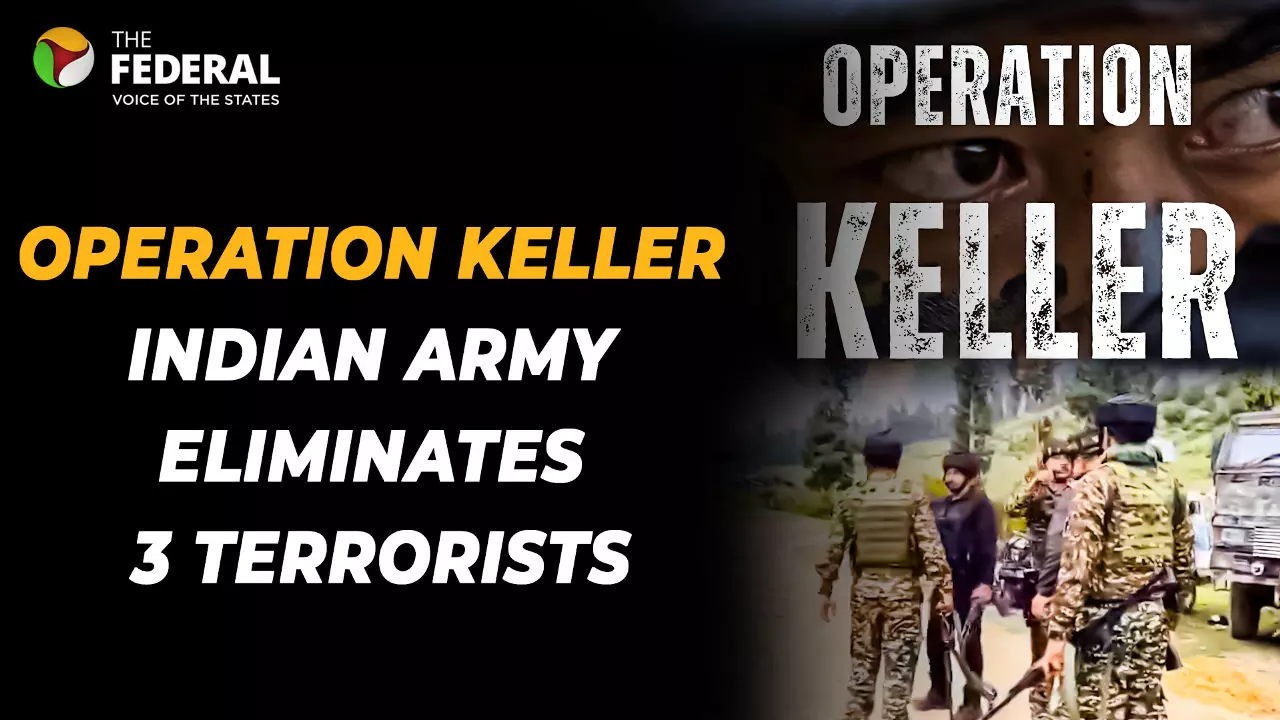
Operation Keller: Army eliminates 3 terrorists
Operation Keller: Indian Army kills 3 terrorists in Shopian encounter
Shopian saw a major anti-terror success as three Lashkar-e-Taiba operatives were eliminated in Operation Keller. Is this India’s new counter-terror strategy?

Three terrorists affiliated with the Lashkar-e-Taiba (LeT) group were neutralised by Indian security forces in a joint counter-terrorism operation codenamed Operation Keller. The encounter took place in the early hours of May 13 in the dense forest region of Keller, Shopian, South Kashmir.
The operation comes days after India and Pakistan agreed to a ceasefire, following a sharp escalation triggered by the Pahalgam terror attack. The swift success of Operation Keller adds momentum to India’s ongoing anti-terror drive.
Late-night assault in Alshipora
According to official reports, the security forces received intel late in the night regarding the terrorist movement in Alshipora, Shopian. Based on the tip-off, the Jammu & Kashmir Police, 44 Rashtriya Rifles (RR), and 178 CRPF units launched a coordinated action.
“At around 1 o'clock in the night, the terrorists fired on our forces. The operation went on all night and was considered very successful for our forces,” said a voiceover in the Army’s official statement.
Success after Op Sindoor
The Indian Army confirmed that Operation Keller was initiated based on specific intelligence from a Rashtriya Rifles unit. This marks the second major anti-terror operation in just a few weeks, the first being Operation Sindoor, launched on May 7 against terror hubs in Pakistan and PoK.
"The Indian Army released an official statement that based on specific intelligence, Operation Keller was initiated and was a grand success,” the report said.
Slain terrorist identified
Vidhi Kumar Birdi, IGP Kashmir, provided further confirmation about one of the terrorists killed in the encounter: “Yesterday, the Shopian police got an input that a terrorist’s location was in Chotigam, Shopian... During the search, bullets were exchanged and an encounter started... The terrorist, Bilal Bhatt of Chak Cholan, was later neutralised.”
Bhatt, formerly an overground worker (OGW), had joined the active ranks of LeT and was reportedly involved in multiple attacks, including the killing of an army officer and minority killings in the region.
Tense backdrop of truce
The encounter took place at a time of heightened Indo-Pak tensions. On April 22, 26 civilians were gunned down in Pahalgam, prompting India’s Operation Sindoor, which targeted nine terror hubs across the border.
Though both nations agreed to a ceasefire shortly after, Prime Minister Narendra Modi warned of stern retaliation in the event of future provocations.
“Any further escalation or misadventure by Pakistan will be treated as an act of war and will invite a proportionate response,” he said.
In his sharpest statement yet, Modi reiterated India’s firm stance on terrorism: “Terror and trade cannot run together. Water and blood cannot flow together.”
The content above has been generated using a fine-tuned AI model. To ensure accuracy, quality, and editorial integrity, we employ a Human-In-The-Loop (HITL) process. While AI assists in creating the initial draft, our experienced editorial team carefully reviews, edits, and refines the content before publication. At The Federal, we combine the efficiency of AI with the expertise of human editors to deliver reliable and insightful journalism.

